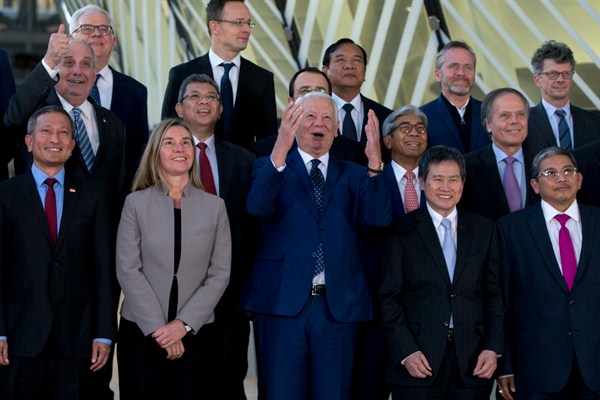In the early years of this century, there were suggestions that the European Union could play the role of a “quiet superpower,” and even speculation that Brussels might become a hegemonic rival to the United States. Now, with the rise of China and talk of a new Cold War brewing between Washington and Beijing, the EU’s place in the world is looking dramatically less imposing.
For some experts and observers, the EU continues to be a “civilian power,” given its nonmilitary capabilities, or a “normative power,” referring to its historical role in helping to shape global norms on human rights and governance. A more apt term, popularized by Chad Damro at the University of Edinburgh, is that of a “market power,” due to the EU’s ability to influence foreign governments not through force or the threat of violence, but through inducements of better trade.
On this front, it has much to offer. In 2017, the combined GDP of the EU member states was $17.3 trillion, compared to America’s $19.4 trillion and China’s $12.2 trillion, according to the World Bank. Moreover, unlike China, the EU typically imports as much each year as it exports, making it irreplaceable for countries with export-driven economies.

